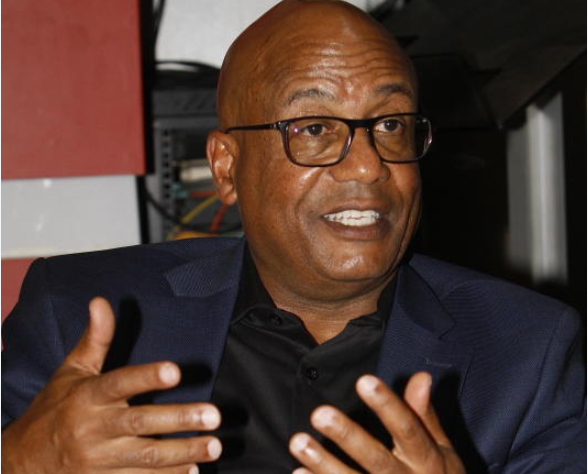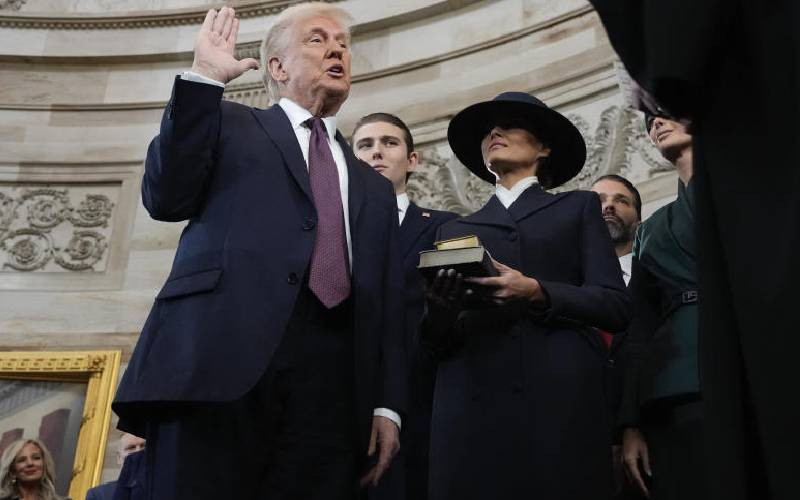The tiny money App running ahead of M-Pesa in Ethiopia
News
By
Frankline Sunday
| Dec 23, 2018

Last year, Safaricom Chief Executive Bob Collymore told British newspaper Financial Times that the company was looking to export the M-Pesa brand to other countries in East and West Africa.
Analysts expected the company to announce an impending entry into Ethiopia this year, especially following new Prime Minister Abiy Ahmed’s effort to liberalise the country’s political and economic space.
Part of the reforms involve opening up the telecommunications sector to limited private investment through floating shares in the State-owned monopoly Ethio Telecom and granting licences to new service providers.
One of these providers slowly building traction in Ethiopia is a small payments app called Amole. Developed by Moneta Technologies, a firm registered in Ethiopia and with Kenyan ties, Amole is rapidly building a digital payments business that will give new market entrants a run for their money.
The app was launched in July this year at a ceremony where Safaricom board director and former CEO Michael Joseph was the keynote speaker, and has in the past five months registered 350,000 subscribers.
READ MORE
Trump holds off on immediate tariffs but plans trade overhaul
We'll reform tax system to spur businesses, Lee Kinyanjui says
CBK fast-tracks new mobile payment system to rival M-Pesa
CMC exit: Is Kenya turning into a graveyard for industries?
Kenya's mining risk hitting rock bottom amid declining trend
Africa urged to take up seat at the table in clean energy push
Trump's return unlikely to be all doom and gloom for Kenya, others
Afreximbank receives top rating from China, boosting African development
Kisumu eyes economic growth with ambitious Sh120 billion project
Bitcoin hits record above Sh14m awaiting Trump second stint at the White House
“We are on-boarding 12,000 users daily, most of them in Addis Ababa alone and we hope to have 2.7 million users on the platform by June next year,” said Moneta Technologies CEO Yemiru Chanyalew in an interview with Sunday Standard.
Amole is named after an ancient bar of soap that was used as a form of currency and the app developers are proposing it as a solution to Ethiopia’s economic challenges.
“We offer mobile money and digital finance through an omni-channel platform where users can engage with Amole through USSD, smart phone app and on their desktops,” said Mr Chanyalew.
He said the developers learnt a lot from M-Pesa and customising the app to work for the Ethiopian environment.
“Ethiopia’s fintech model is bank-led while in Kenya it is a hybrid system,” he said. “In our case we partner with banks to facilitate more ways for them to conduct business with their consumers.”
This requires fintech and mobile networks to sign special working arrangements with banks to gain a licence for rolling out the service.
At the same time, Chanyalew says while M-Pesa scaled up on pear-to-pear cash transfers, Amole is looking at merchant payments as the avenue for growth.
“In Ethiopia, the focus is largely on facilitating merchant payments because the economy has wide capacity gaps across the various sectors,” he explains.
In this regard, Amole users are not charged for transactions fees when they make payments.
Merchants also double up as agents and regulations prohibit registering an agent business without having an established enterprise. The company has 2,500 merchant agents and looks to double the figure in the next six months.
“Merchants take the burden of cost because the more people use the app the more transactions and more money they make. Often the cost works up to less than one per cent of the transaction value,” said the CEO.
He said waiving transaction costs for users also reduces friction in using the app since app charges often serve as a deterrent to many users.
The app is also embedded with a chat and e-commerce function that helps users link to sites such as online stores and travel companies for seamless transactions.
In this way, the app is modeled around China’s phenomenal WeChat, which allows users to do everything from ordering food to receiving pension payments without leaving the app.
With up to 65 per cent of Ethiopia’s estimated 100 million citizens being digital natives, Chanyalew hopes Amole will be the country’s version of WeChat.
“We are looking to signing more agreements in the digital payments space such as facilitating cashless transactions between wholesalers and distributors as well as cash disbursements from both the State and private entities,” he said.
The company has signed an agreement with biodiesel company API Renewable Energy that will see the company use Amole for the payment of farm inputs to half a million Jatropha farmers.
Mobile lending
The CEO however said it will be a while before the firm can venture into mobile lending since it has not built the required deposits base but with reforms in the financial sector, he is optimistic that it is only a matter of time.
“We hope the reforms introduced by the new prime minister will formalise the remittance market and this will give us a boost in tapping into other areas like cross-border transfers and diaspora remittances,” he said.
Currently, the firm has formed a working relationship with several international money transfer firms such as World Remit and Equity Bank’s Finserve to facilitate the shift into the international money transfer market.
“We are not alarmed about the prospect of competition because cash still remains king and there is a big need to facilitate more cashless transactions and allow more unbanked consumers to get into the formal financial system,” said Chanyalew.

